Our certificate programs are curated for professionals in every practice area. Completing a program entitles you to one of our digital badges to show your achievements and demonstrate your knowledge.
Certificate Program Benefits
- Convenient, online format for the busy professional
- Expert instruction from respected thought leaders and organizations
- Diverse range of programs for professionals at all stages of their careers
AICPA
Demonstrate competency, expand your career opportunities or enter new areas of practice by earning certificates created by the AICPA. Receive a digital badge upon completion to display in your email signature, social media, LinkedIn profile and more to validate your experience and verify your commitment to quality.

Through a series of interactive case studies and advanced learning exercises, this CPE course will help you to grow your expertise in defined contribution, defined benefit, and health and welfare plan types. Developed for experienced EBP plan auditors, the course will take you through mock audit exercises in which you will follow a "client" through each phase of an employee benefit plan audit engagement. You have the flexibility to focus on the plan type of your choice or all three. Evaluate and interpret employee benefit plan-specific audit circumstances in the areas of planning and risk assessment, reviewing draft financial statements, and writing the auditor's report.
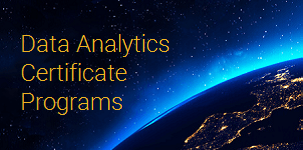
The Application of Data Analysis Essentials Certificate offers hands-on experience regarding how to analyze data and calculate fundamental aspects of your data sets. This certificate program provides the core concepts and definitions of data analytics, which explain the anatomy of data as a medium, and provides fundamental statistical analysis techniques for beginning to glean useful information from data. First, you will learn the different types of variables that make up a data set and perform meaningful calculations on data to discover and explore relationships that yield insights: central tendency, variability, probability, and distribution. Then we will delve into recognizing these qualities in their different forms and how to utilize them in practical business situations. This program offers straightforward exercises to help you practice and immediately apply what you've learned. You will also get exposure to and practice with useful concepts such as quartiles, variance, and standard deviation. Finally, you will be introduced to one of the most powerful tools available for analyzing data: the open-source "R" platform. You will be guided through an actual use case for analyzing data using R and complete your learning by seeing how the statistical concepts you've just learned can be applied in a real-world example. By completing this certificate, you will have a solid grasp of core statistical techniques underpinning an analytics practice and hands-on-practice using them.

The Advanced Defined Benefit Plans Audit Certificate exam tests your ability to plan, perform and evaluate defined benefit plans, in accordance with AICPA standards and DOL rules and regulations. This exam is offered in a timed online format and consists of 75 multiple choice questions. In order to successfully pass the examination, you must be able to evaluate and analyze the core concepts related to client acceptance, engagement planning, engagement analysis, concluding an engagement and guiding principles for defined benefit plan audits.

The Advanced Defined Contribution Plans Audit Certificate exam tests your ability to plan, perform and evaluate defined contribution plans, in accordance with AICPA standards and DOL rules and regulations. This exam is offered in a timed online format and consists of 75 multiple choice questions. In order to successfully pass the examination, you must be able to evaluate and analyze the core concepts related to client acceptance, engagement planning, engagement analysis, concluding an engagement and guiding principles for defined contribution plan audits.

The Advanced Health and Welfare Plans Audit Certificate exam tests your ability to plan, perform and evaluate health and welfare plans, in accordance with AICPA standards and DOL rules and regulations. This exam is offered in a timed online format and consists of 75 multiple choice questions. In order to successfully pass the examination, you must be able to evaluate and analyze the core concepts related to client acceptance, engagement planning, engagement analysis, concluding an engagement and guiding principles for health and welfare plan audits.
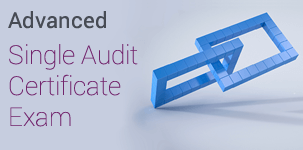
The Advanced Single Audit Certificate exam tests your ability to plan, perform and evaluate single audits in accordance with the latest requirements of the new Uniform Guidance. This exam is offered in a timed online format and consists of 75 multiple choice questions. In order to successfully pass the examination, you must be able to evaluate and analyze the core concepts related to client acceptance, engagement planning, engagement analysis, concluding an engagement and guiding principles for single audits.
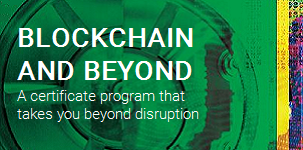
Be at the forefront of shaping the adoption of blockchain in accounting and finance. Lay the foundation for your future as a strategic business partner within your organization and with your clients. With real-world literacy on blockchain and cryptoassets, you will be empowered to translate the technology into relevant business application and value for you and your organization. Learn the characteristics of blockchain and cryptoassets, identify opportunities and risks, and understand high-level technology concepts underpinning blockchain. Use a cryptocurrency wallet in a hands-on transaction exercise and verify information written to a block, and perform a hands-on hash activity exercise, then verify it. Learn to differentiate between current state and future state.
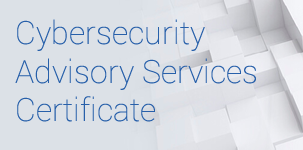
Cybersecurity threats are escalating, unnerving the boards of directors, managers, investors and other stakeholders of organizations of all sizes-whether public or private. Organizations are under increasing pressure to demonstrate that they are managing threats, and that they have effective processes and controls in place to detect, respond to, mitigate and recover from cybersecurity events. Cybersecurity yields potential business opportunities for a firm to better serve its clients. As a trusted business advisor, firm practitioners can provide advisory services that help companies spot cybersecurity weaknesses, identify potential risks and offer advice on how to safeguard information and systems. Learn how you can help your clients navigate threats by becoming a trusted business advisor for their organization's cybersecurity risk management programs.
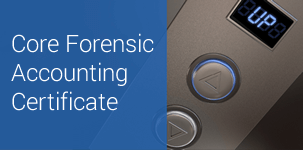
This new online CPE certificate course covers knowledge topics found in the Content Specification Outline for the Core Certified in Financial Forensics (CFF) Credential exam. Excelling in forensic accounting requires a professional to have a solid understanding of core forensic knowledge before specializing in the various niche forensic practice areas. Through narration by an industry subject matter expert and application exercises, this certificate course covers the areas essential to the planning, performance and reporting of a forensic engagement including evidence identification and gathering, discovery, interview techniques, deposition and testimony, reporting requirements and more.
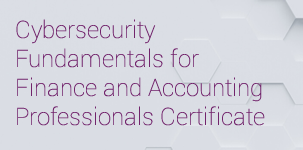
According to CSO, an online resource dedicated to security and risk management, cybercrime damage costs are expected to hit $6 trillion annually by 2021 and cybersecurity spending will exceed $1 trillion from 2017 to 2021. Organizations are under increasing pressure to demonstrate that they are managing threats, and that they have effective processes and controls in place to detect, respond to, mitigate, and recover from cybersecurity events.
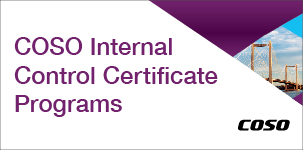
Designing and implementing a quality system of internal control can be challenging. Adapting to rapidly changing business models and emerging technologies require a sound system of internal control-and those who manage them-to be agile. The COSO Internal Control Certificate will develop your expertise in designing, implementing, and monitoring a system of internal control. Apply COSO concepts to several real-world scenarios in this course to learn how to add value to your own organization through improved operations, reporting and compliance. Enhance your knowledge of the IC framework Obtain a brief overview of the framework and then delve deeper into the details of how to assess internal control by principle. The variety of situations provided will help you apply the framework, as well as ignite thought into how they might relate to your organization. In the final module, you will see how it all comes together by assessing a system of internal control for an organization in a case study.
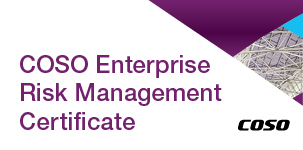
The only COSO-authorized certificate program on the 2017 COSO ERM framework, this new certificate program offers you the unique opportunity to learn the concepts and principles of the updated ERM framework and be prepared to integrate it into your organization's strategy-setting process to drive business performance. Plus, you'll earn up to 13.5 hours of CPE. Seven self-paced modules provide you with the knowledge necessary to understand and apply COSO's Enterprise Risk Management - Integrating with Strategy and Performance. The ERM Framework assists management and boards of directors with their respective duties for managing risk. It does so by explaining five easy-to-understand components that accommodate different viewpoints and operating structures, and enhance strategies and decision-making.
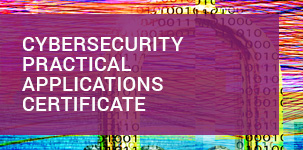
In your role as an accounting professional, you will likely be involved in assessing and mitigating cybersecurity risk, and determining what will be done in the event of a cybersecurity breach. Through this engaging certificate program, you will learn Common cybersecurity risks and how to minimize those risks; Good cyber hygiene at the organizational and personal level; Available cybersecurity related services; Business events that trigger cybersecurity considerations; Proactive responses in the event of a cyberattack; Considerations for assessing the effectiveness of a cybersecurity risk management program; Cybersecurity best practices in today's business environment. Empower yourself to implement a sound cybersecurity risk management program that will help your organization avoid cyberattacks and recover quickly when they do occur.
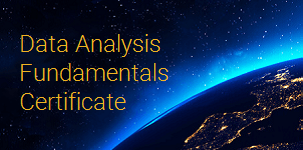
The Data Analysis Fundamentals Certificate begins with a foundational understanding of the need of transformational assets within an organization and explains the importance of intelligent data management and corresponding analytics practice. The Data Analysis Fundamentals Certificate aims to provide you with the knowledge on the different job roles involved in the analytics practice and the most commonly encountered technologies in today's data ecosystem. It will cover concepts behind the most common types of data you will need to be prepared to analyze, as well as help you explore the factors impacting data practice. This certificate program will also explain why intelligent data management and a corresponding analytics practice is critical for the success of both the organization and the professional.
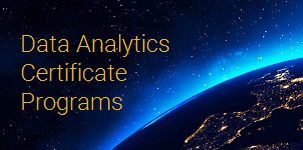
The Data Analytics Modeling Certificate will expand your ability to work with structured and unstructured data to drive a successful analytics practice. To start, you will learn to define clear business outcomes for your analytics practice to ensure your efforts align with your organization's strategic direction and create value. Next, you will learn data profiling and data cleansing techniques to maintain data quality throughout the data life cycle. You'll practice ETL (extract, transform, load) techniques and work with different data models and analytics tools. Finally, you will learn how to institute sophisticated tools for managing an ongoing enterprise data practice, including tools for data warehousing, managing the data life cycle, and working with structured and unstructured data.
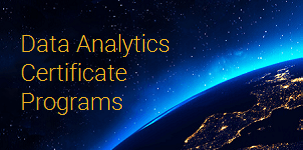
The Data Visualization Certificate will guide you through every major facet of one of the most important areas of your data practice - data visualization. Building from underlying technology, architecture, and analysis considerations, you will learn how to translate data into meaningful information, visualize the information, and communicate findings and lessons. You will learn fundamental types of visualization techniques such as charts and graphs and explore a sampling of the most common reporting tools for producing meaningful visualizations. You will continue by developing an understanding of business intelligence (BI) - the overall architecture by which organizational data can be managed and understood. Additionally, you will examine the various components and technologies that make up effective BI and understand how they fit within the larger business. Finally, you will be guided through fundamental design principles and communication concepts behind effective dashboards and reports and how to present findings from data to other business stakeholders. This certificate ensures that your data analysis skills are demonstrated effectively so the leaders of your organization understand your strategic value.

The Fundamentals of Forensic Accounting Certificate Program provides participants with a solid understanding of financial forensics. Covering the AICPA's entire Body of Knowledge in this topic area, this online CPE self-study program consists of 19 required modules that utilize interactive scenario-based learning, including audio and video animation, to guide you through the concepts.
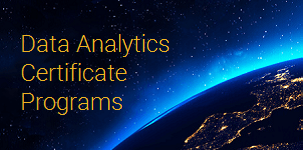
The Forecasting and Predictive Analytics Certificate will teach you fundamental techniques used for predictive analytics: regression, classification, clustering, optimization, and simulation. Beginning with basic models for revealing and establishing relationships, you will learn to apply increasingly sophisticated modeling techniques for practical data analysis, as well as commonly encountered problems so you can determine the fit and usefulness for prediction of your models, and apply them to typical business problems. As you develop your understanding of applied predictive analytics, you'll learn how to perform basic forecasting using time-based data to predict future values from a model. You will also learn how to model and calculate scenarios based on distance and space. You will get practice with classification, including naive Bayesian classification; create basic decision trees; and use various techniques for clustering and linear optimization to solve common business problems; as well as learn techniques for assessing the effectiveness of your solutions.
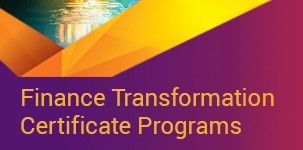
The Ignite Change Certificate provides deeper insight into the various objectives and roles within the Finance value chain of the future. It focuses on what changes are required within organizations to adapt to the changing business environment and how new and existing roles will underpin the value chain. This certificate covers some key concepts including the following: Integrated planning and the role of the Finance business partner Rethinking traditional processes and evaluating growth strategies Technology components in an integrated Finance design and their key impacts on finance
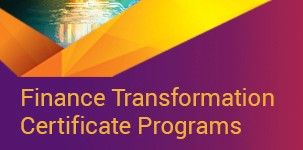
The Manage Disruption Certificate provides the context to the accelerating evolution of finance in organizations. It focuses on why and how the business environment is changing and how the finance team can prepare for and respond to these changes. This certificate introduces key concepts that will be covered in-depth in parts two and three of the learning program, specifically covering the following: Disruptive factors within businesses today Business and industry value chains Emerging role of the finance function Changes in technology affecting finance New skills and competencies required within the finance function

Progress toward a set of global accounting standards is no longer a goal of the International Accounting Standards Board (IASB)-it is a reality, as many of the world's largest capital markets require or permit the use of International Financial Reporting Standards (IFRS). Over 125 countries require publicly traded companies to apply IFRS, while many other jurisdictions permit the use of IFRS in some circumstances. Why is IFRS relevant in the US, and for you? Many multinationals corporations are headquartered across the U.S., so you could easily find yourself with a client subject to IFRS requirements, either for itself or a non-U.S. subsidiary. You might increasingly find yourself structuring deals and transactions with IFRS counterparties, including vendors and customers. Understanding the implications of structuring these transactions and reporting on them using IFRS will require you to have more than a passing knowledge of these standards. As both FASB and IASB continue their standard-setting agendas, you'll need to assess proposals and be concerned about divergence that could affect your financial reporting or audit responsibilities going forward.
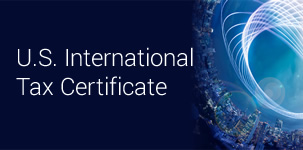
This comprehensive learning program helps global finance and accounting professionals navigate the highly complex world of international taxation. Developed in partnership with Grant Thornton, this certificate program is valuable to anyone who needs to understand the complexities of international taxation. The U.S. International Tax: Advanced Issues bundle dives deeper into how to handle complex tax issues such as transfer pricing, tax treaties and corporate formations.
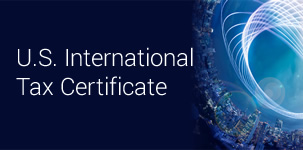
This series of self-study online courses is part of the U.S. International Tax Certificate, a comprehensive learning program developed in partnership with Grant Thornton geared to help global finance and accounting professionals navigate the highly complex world of international taxation. Valuable to anyone who needs to understand the complexities of international taxation, this U.S. International Tax: Core Concepts bundle offers you the opportunity to build a solid foundation in U.S. international taxation. This two-course series covers topics such as distinguishing the differences between various types of global tax systems and certain characteristics of each, entity classifications and different forms of operating a business in a foreign country. Earn a digital badge for the completion of this series.
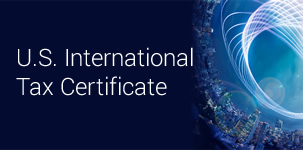
This is a comprehensive learning program geared to help global finance and accounting professionals navigate the highly complex world of international taxation. Developed in partnership with Grant Thornton, this self-study online certificate program is valuable to anyone who needs to understand the complexities of international taxation. The U.S. International Tax: Inbound and Outbound Transactions bundle offers you the opportunity to build a solid foundation in U.S. international taxation. This five-course series covers topics such as distinguishing the differences between various types of inbound and outbound transactions.
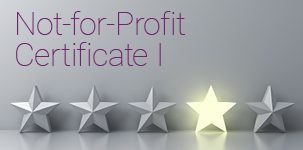
This comprehensive on-demand learning experience covers the core concepts of accounting and financial reporting, tax compliance, governance and assurance. This 40-hour interactive CPE program contains real-world examples, case studies, animations and videos to create a flexible, dynamic learning experience.
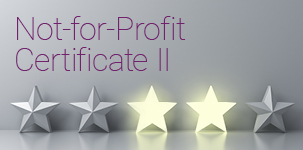
After completing this course, you will be able to successfully prepare financial statements, complete the Form 990, build complex budgets, and guide the strategic planning process. You'll also learn how to perform risk assessments, proactively respond to tax compliance issues, measure performance, and work with an organization's governing board to achieve mission success. Plus, experts provide practice tips to help you tailor your methods to address the challenges of nonprofits of all sizes.

The Estate Planning Certificate Program is an informative and engaging learning experience that will enhance your knowledge of estate planning. Part of the Personal Financial Planning Certificate Program, the Estate Planning Certificate includes eight courses covering steps in the estate planning life cycle, including gifting strategies, charitable planning, and integrating your clients' estate plans with their tax and financial plans. And, if you are seeking a thorough understanding of estate planning as outlined in the AICPA Personal Financial Planning (PFP) Body of Knowledge, this program is for you!

The Investment Planning Certificate Program is an informative and engaging learning experience that will enhance your knowledge in investment planning. Part of the Personal Financial Planning Certificate Program, this certificate program includes eight courses covering steps in the investment planning life cycle, along with a discussion of planning for and funding higher education. And, if you are seeking a thorough understanding of investment planning as outlined in the AICPA Personal Financial Planning (PFP) Body of Knowledge, this program is for you!

The PFP Practical Application Certificate is earned upon successful completion of the continuing education courses. It is an informative and engaging learning experience that will enhance your knowledge of personal financial planning. Part of the Personal Financial Planning Certificate Program, this certificate program is comprised of five courses, including four case studies, covering the clients' planning life cycle. You will learn to navigate the regulatory environment, understand the PFP standards, use fundamental concepts in a systematic planning process, and utilize your technical knowledge for the benefit of your clients. If you are seeking a thorough understanding of the planning process and your responsibilities as a planner with real-world application of how the PFP topics integrate with your clients life goals, this program is for you!
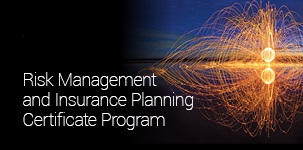
The Risk Management and Insurance Planning Certificate Program is an informative and engaging learning experience that will enhance your knowledge in risk management and insurance planning. Part of the Personal Financial Planning Certificate Program, this certificate program includes eight dynamic courses covering critical steps in the risk management and insurance planning process from insurance contracts and annuities to deferred compensation and integrating the business with the owner's personal financial plan.

The Retirement Planning Certificate Program is an informative and engaging learning experience that will enhance your knowledge in retirement planning. Part of the Personal Financial Planning Certificate Program, this certificate program includes six dynamic courses covering critical steps in the retirement planning life cycle, including unique planning for aging and chronically ill clients.
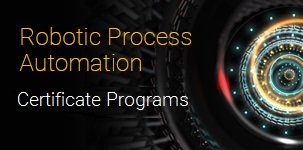
By 2020, 40% of manual accounting tasks are predicted to be automated, which can ensure a competitive advantage. With advanced preparation and strategy, rollout can be timely and result in significant hours saved. This certificate will focus on robotic process automation benefits and how the use of software robots can enable your business or clients to become more competitive and agile. You will gain an understanding of the risks, opportunities, and organizational impact of automation while learning the decision criteria and key considerations needed to build a business case and run a successful proof-of-concept. You will also understand the steps and governance needed to implement or advise clients on how to implement successfully.
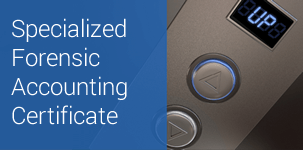
Because each forensic accounting engagement is unique with its facts and objectives, the forensic accountant needs to use appropriate specialized forensic knowledge, tools and procedures during the engagement. A basic knowledge of each area is helpful. However, no one practitioner would be expected to know them all, but rather would seek expert assistance where necessary. Through narration by industry subject matter experts and application exercises, this certificate program covers unique areas of a forensic engagement including bankruptcy, business/individual/intellectual property damages, mergers and acquisitions, family law, divorce and more.
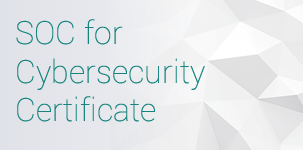
Cybersecurity threats are escalating, unnerving the boards of directors, managers, investors and other stakeholders of organizations of all sizes-whether public or private. Organizations are under increasing pressure to demonstrate that they are managing threats, and that they have effective processes and controls in place to detect, respond to, mitigate and recover from cybersecurity events. To meet this need, we have introduced SOC for Cybersecurity, a solution that builds upon the profession's experience in auditing system and organization controls. For clients whose cybersecurity risk management programs are mature, an independent CPA can perform an examination, in which the CPA expresses an opinion on the client's description of its cybersecurity risk management program and an opinion on the effectiveness of the controls within that program. This certificate will enable you to understand how to perform SOC for Cybersecurity attestation examinations using the AICPA's new cybersecurity risk management reporting framework.
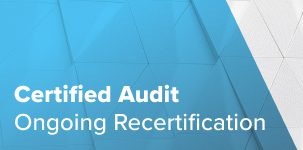
This course is a review of Florida sales and use tax laws for specific industries, the audit process, and the administrative aspects of the Certified Audit Program.
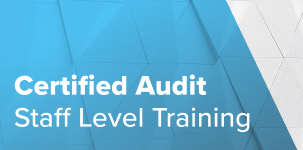
This course is a review of Florida sales and use tax laws for specific industries and the audit process.
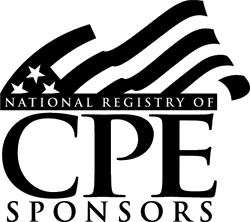
The Florida Institute of CPAs (FICPA) is registered with the National Association of State Boards of Accountancy (NASBA) as a sponsor of continuing professional education on the National Registry of CPE Sponsors. State boards of accountancy have final authority on the acceptance of individual courses for CPE credit. Complaints regarding registered sponsors may be submitted to the National Registry of CPE Sponsors through its website: NASBARegistry.org.
Questions about our certified programs?
Contact Member Services
(800) 342-3197 x1 | (850) 224-2727 x1 | [email protected]